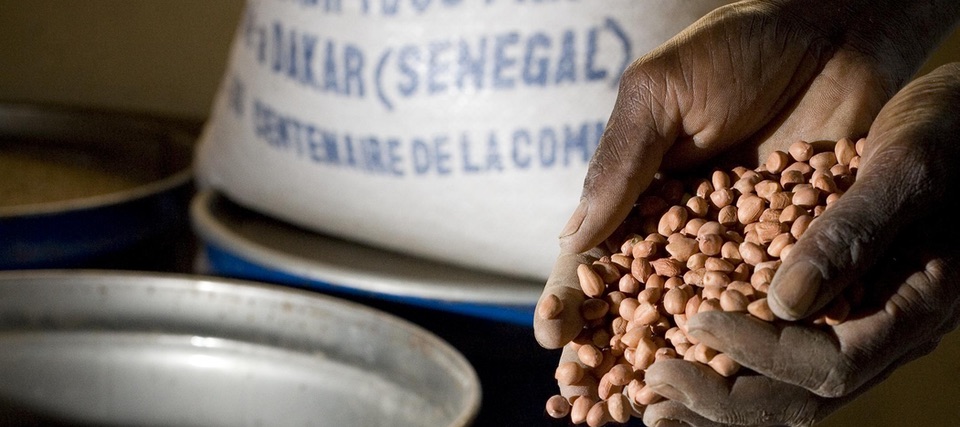
 Senegal, on the western edge of Africa, was an ideal base for the transatlantic slave trade, although the European powers that established themselves in the region found other goods to trade too. One of the most important was the peanut, brought by Portuguese explorers to Africa, where it grew well, tended mostly by enslaved African labourers.
Senegal, on the western edge of Africa, was an ideal base for the transatlantic slave trade, although the European powers that established themselves in the region found other goods to trade too. One of the most important was the peanut, brought by Portuguese explorers to Africa, where it grew well, tended mostly by enslaved African labourers.
Peanuts were exported in large quantities, mostly to France, to lubricate the industrial revolution and to provide a key raw material for soap, especially in Marseille. Trade encouraged the French to establish the port city of St. Louis, which was officially part of France. As such, slavery was abolished there in 1815. That, however, often failed to protect slaves who somehow escaped and found their way to the city.
Jori Lewis’ book Slaves For Peanuts: A Story of Conquest, Liberation, and a Crop That Changed History tells the tangled story of how colonial expansion and Christian missionaries simultaneously encouraged and opposed slavery, and how the history of peanuts and slavery still reverberates in Senegal.
Notes
- Slaves For Peanuts by Jori Lewis is published by New Press. Jori Lewis is on Twitter.
- The Women Who are Disrupting Senegal’s Peanut Basin is about a project to improve women’s lives in the modern peanut basin.
- Here’s my effort on peanuts and world affairs, which I need to update.
- Yes, there will be a transcript, thanks to the podcast’s Supporters
- Banner image adapted from a photo by Heifer International


 Emissions
Emissions
